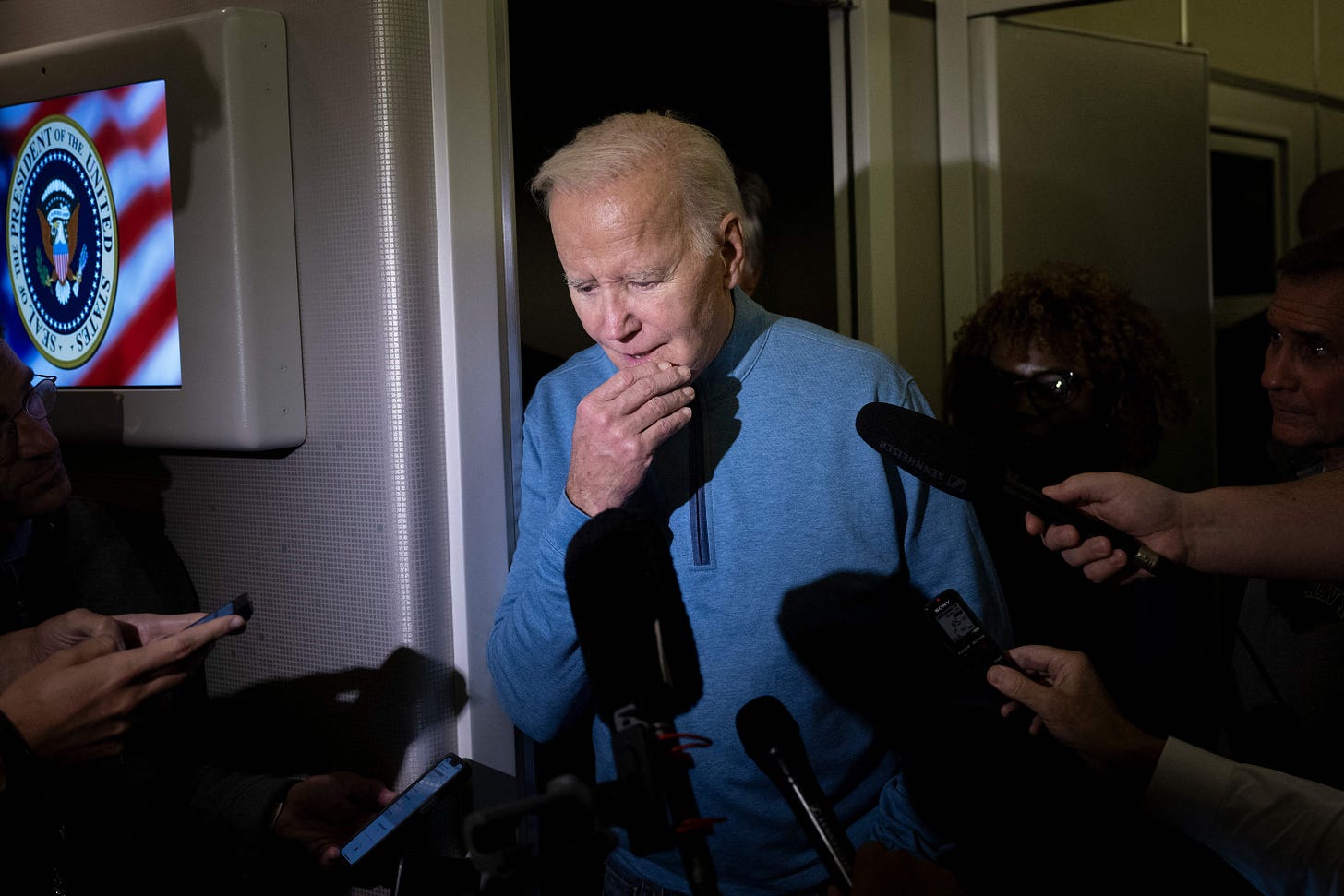Why did major news outlets take Hamas's word on the Gaza hospital strike?
My theory: No, it wasn't for 'clicks.' And it's something we've seen before.
The early news coverage of the strike on a Gaza City hospital strike last week can reasonably be called a monumental failure.
In the early hours, many news organizations strongly suggested — or straight-out stated — that it was Israel’s strike, and that it killed 500 or more people. Among those reporting in a misleading manner: the BBC, the New York Times, CNN, the Associated Press, Reuters, Al Jazeera and the Wall Street Journal.
Within about a day, or even sooner, there was reason to believe — based on analysis from forensics experts and other sources — that the early reporting got it wrong. President Biden, on his visit to Israel soon after the attack, said publicly that Israel did not appear to be its source; but even he was not definitive. Exactly what happened is still being debated, including in the New York Times.

In all likelihood, the Oct. 17th blast originated in Gaza not in Israel, and possibly from a Palestinian Islamic Jihad misfire. And the casualties, while reported as at least 500 in some outlets, now are thought to be significantly fewer.
That false reporting was consequential, sparking worldwide protests.
Two news outlets — the New York Times and the BBC — have communicated with their readers or audiences, acknowledging the screw-up. Their mea culpas are good to see, as was an interview that Times editor Joseph Kahn did for a New York Times podcast. Most other news organizations don’t seem to want to talk about or suggest that they don’t have a problem with how they handled it.
But why did it happen to begin with?
Was it really about getting clicks for the story, as many people seem to think? Or was it because of a desire to push a political agenda? I don’t think either of those theories is correct.
Bill Grueskin, a Columbia University journalism professor and former high-ranking Wall Street Journal editor, got to the heart of it when he tweeted: “I think people are underestimating the degree to which the headlines on the hospital blast were driven by coursing newsroom energy to be on top of a huge story, rather than traffic optimization or bias.”
In other words, something big had happened — a substantial development in the major news story of the moment — and, amid the chaos, journalists were scrambling to cover it. They were taking their information where they could find it. They did so without due consideration for how credible their source was.
They moved too fast, and without sufficient skepticism or caution.
Some in-the-moment internal messages from the New York Times obtained by Charlotte Klein of Vanity Fair cast light — and not very flattering light — on the decision-making process.
One senior editor worried, in a Slack messaging channel, that an early headline “goes way too far.” That headline read: “Israeli Strike Kills Hundreds in Hospital, Palestinian Officials Say.”
But this wise caution, along with others, was overridden; after all, the flawed reasoning went, the information was being attributed to Palestinian officials. In fact, another editor was pushing to go further in the story’s first paragraph, suggesting “At least 500 people were killed on Tuesday by an Israel strike at a hospital in Gaza City, the Palestianian authorities said.”
On the BBC, an on-air correspondent speculated that it was “hard to see what else this could be, really, other than an Israeli air strike or several air strikes.”
Journalism history is littered with this kind of foolhardy, in-the-moment decision-making. Although on a smaller scale, this episode is reminiscent of the disastrous coverage, by the New York Times and elsewhere, in the run-up to the Iraq War. Stories claiming that Saddam Hussein had developed weapons of mass destruction were based on anonymous government sources. That those sources may have had an agenda? That didn’t seem to matter too much.
A ranking New York Times editor once said to me, during my stint as public editor there, while explaining why a major story went sideways and needed to carry a big correction: “We got it wrong because our very good sources got it wrong.”
I didn’t think it was a great explanation then. And, in this situation, Palestinian officials — aka Hamas — can in no way be seen as credible sources.
How could this story have been reported in the early hours? By stating that there had been a strike on a Gaza City hospital, but that the source of the strike was unknown. “Here’s what we know for sure right now, and we’ll keep you posted as we investigate and learn more.”
That story would not have been as definitive or as momentarily satisfying, perhaps. But it would have had the virtue of being accurate.
Thanks to all subscribers for caring about these issues and for your support for this project. Let me know in the comments what you think of the media coverage that has followed Hamas’s attack on Israel earlier this month. Where are you turning for news?





